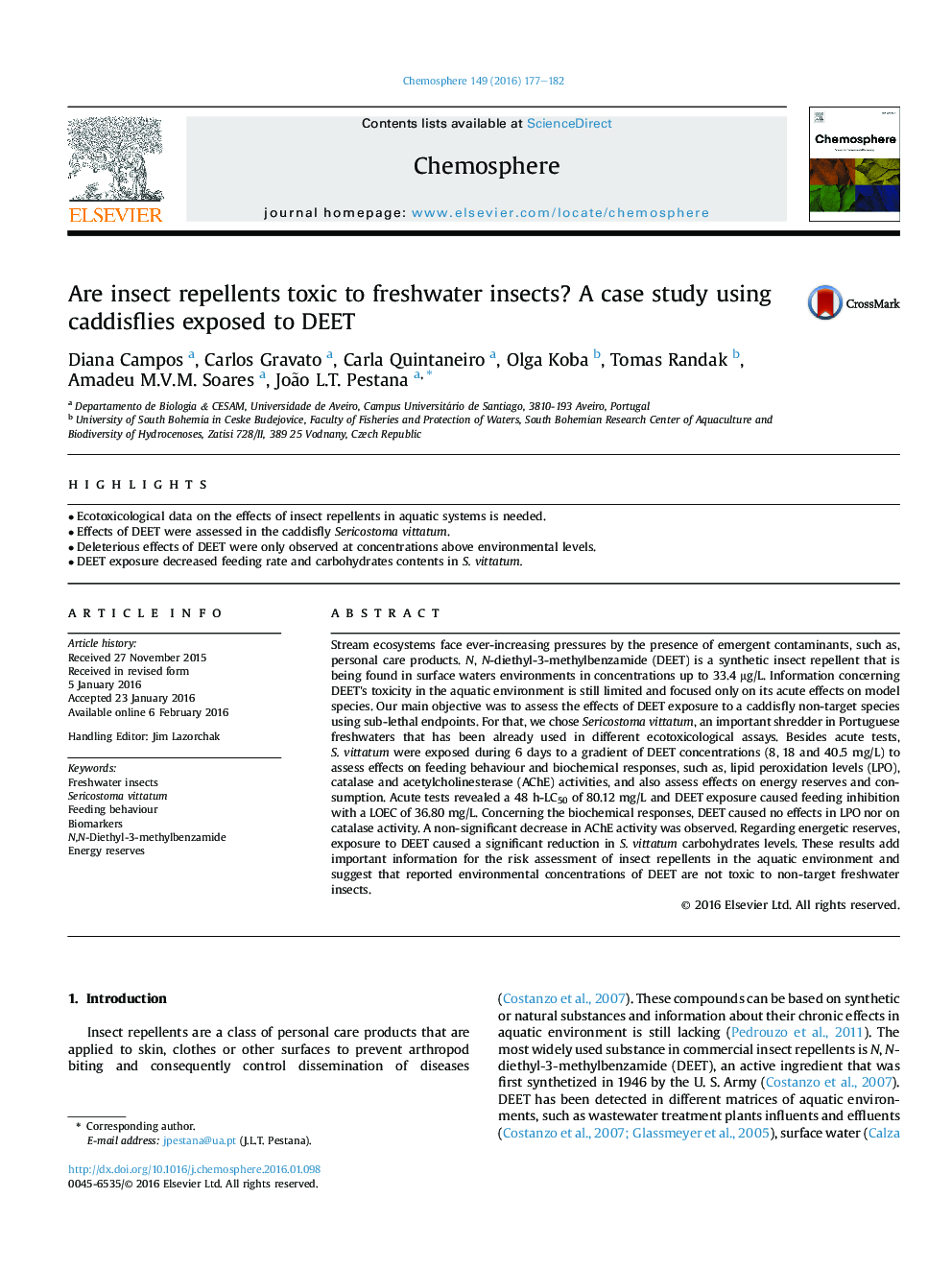| کد مقاله | کد نشریه | سال انتشار | مقاله انگلیسی | نسخه تمام متن |
|---|---|---|---|---|
| 4407906 | 1618822 | 2016 | 6 صفحه PDF | دانلود رایگان |
• Ecotoxicological data on the effects of insect repellents in aquatic systems is needed.
• Effects of DEET were assessed in the caddisfly Sericostoma vittatum.
• Deleterious effects of DEET were only observed at concentrations above environmental levels.
• DEET exposure decreased feeding rate and carbohydrates contents in S. vittatum.
Stream ecosystems face ever-increasing pressures by the presence of emergent contaminants, such as, personal care products. N, N-diethyl-3-methylbenzamide (DEET) is a synthetic insect repellent that is being found in surface waters environments in concentrations up to 33.4 μg/L. Information concerning DEET's toxicity in the aquatic environment is still limited and focused only on its acute effects on model species. Our main objective was to assess the effects of DEET exposure to a caddisfly non-target species using sub-lethal endpoints. For that, we chose Sericostoma vittatum, an important shredder in Portuguese freshwaters that has been already used in different ecotoxicological assays. Besides acute tests, S. vittatum were exposed during 6 days to a gradient of DEET concentrations (8, 18 and 40.5 mg/L) to assess effects on feeding behaviour and biochemical responses, such as, lipid peroxidation levels (LPO), catalase and acetylcholinesterase (AChE) activities, and also assess effects on energy reserves and consumption. Acute tests revealed a 48 h-LC50 of 80.12 mg/L and DEET exposure caused feeding inhibition with a LOEC of 36.80 mg/L. Concerning the biochemical responses, DEET caused no effects in LPO nor on catalase activity. A non-significant decrease in AChE activity was observed. Regarding energetic reserves, exposure to DEET caused a significant reduction in S. vittatum carbohydrates levels. These results add important information for the risk assessment of insect repellents in the aquatic environment and suggest that reported environmental concentrations of DEET are not toxic to non-target freshwater insects.
Journal: Chemosphere - Volume 149, April 2016, Pages 177–182
